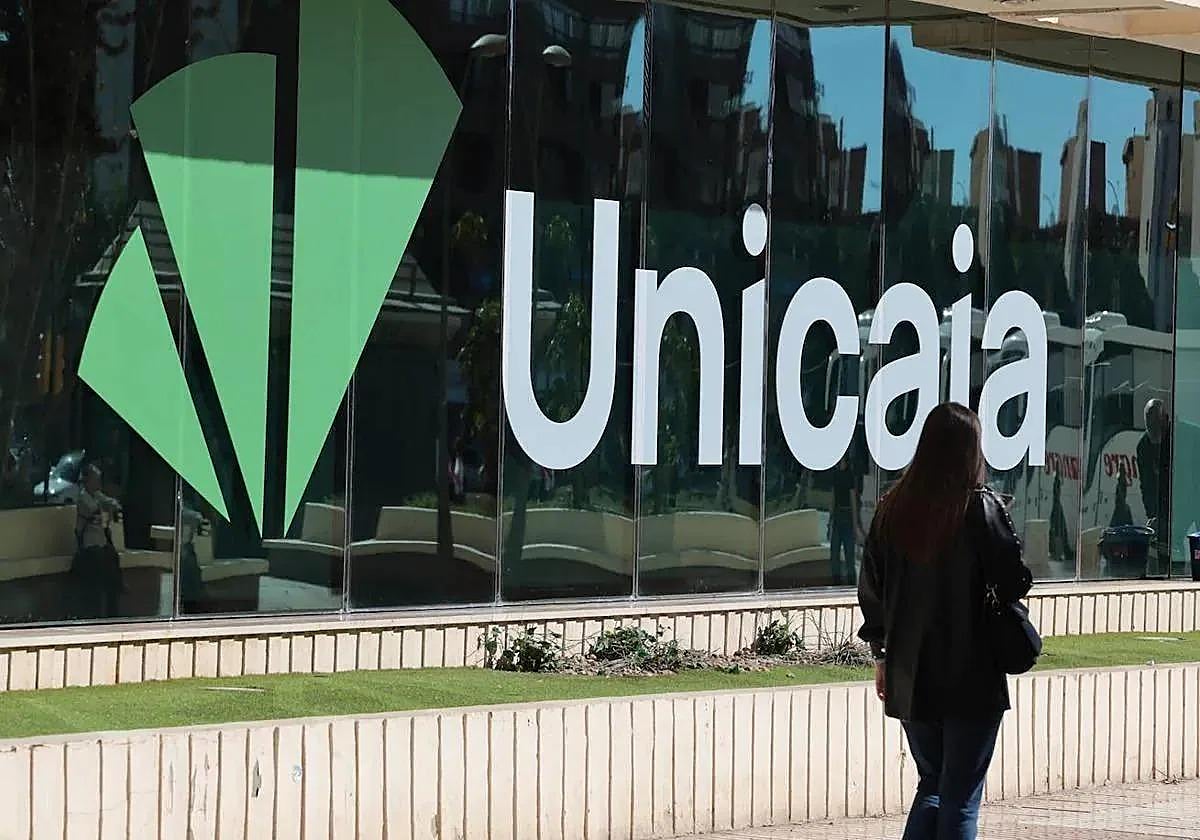Unicaja profits: 451 million euros in 2024 to September, 58% up from last year
The profitability of the Malaga-based bank has been helped by a 19% improvement in net interest income and a reduction in bad debt provision
Unicaja made a profit of 451 million euros between January and September 2024, a substantial increase of 58% compared to the same period in 2023 when it posted a profit of 285 million euros, according to figures the bank sent to the Spanish national securities market commission (CNMV) on Wednesday.
The financial group attributes the improved performance of its results to the increase in net interest income, which grew 19% year-on-year, as well as the 22.8% decline in loan-loss provisions (writing off bad debts).
If we look at both elements in more detail, taking net interest income first, with this 19% rise it reached almost 1.16 billion euros compared to 973 million in the first nine months of last year. According to the bank, despite the reduction in interest rates by the European Central Bank (ECB), which was reflected in the figures for the third quarter, net interest income in this period remained stable at more than 380 million euros. Net interest income increased 14 b.p. to 2.75% (basis points: the base move between between two percentages).
To arrive at the final result, net interest income must be added to net fee and commission income, which at the end of September amounted to 381 million euros, a fall of 4.9% compared to a year ago, a decline that the bank attributes to more customers switching to the bank's 'zero commissions' plans.
Gross income, or rather the result of pure banking activity before any deductions, amounted to 1.52 billion euros, 14% higher than at the same time last year.
Greater efficiency and cost-effectiveness
From these figures are derived the ratios that measure the bank's efficiency, which improved four percentage points year-on-year to 44%, and profitability, with a ROTE (return on tangible equity) of 8%, two percentage points above the levels of September 2023. The solvency ratio, that is, the Tier 1 capital measured on total risk-weighted assets (CET1 fully loaded), was 15.4%, an improvement of 123 basis points in the last 12 months. The banking group attributes this to the organic generation of earnings and the reduction in risk-weighted assets. As a result, the bank has 2.09 billion euros of capital in excess of that required by the industry regulators.
From the gross income figures, the subtractions begin. Administrative expenses, including personnel costs, rose 6.6% year-on-year to 611 million euros. As a result, operating income before provisions amounted to 844 million.
Meanwhile, as already mentioned, loan-loss provisioning needs fell by 22.8% year-on-year to 87 million euros, a figure that is added to the 97 million that the bank has allocated to provisions. This is because the volume of non-performing assets has fallen by 28.7% year-on-year with the fall in the volume of foreclosed and doubtful assets. So, according to the bank, risk coverage remains high: for example, the coverage of foreclosed assets stands at 74.3%.
Moreover, at the end of the third quarter, the NPL (non-performing loan) ratio fell to 2.79% from 3.4% a year ago.
This brings the bank's profit after income tax to 451 million euros between January and September this year.
Balance sheet developments
In terms of the balance sheet, funds under management, including wholesale deposits, increased 2.1% year-on-year to just over 100.52 billion euros, particularly those of individuals, which accounted for 74% of the total. These rose 4.3% year-on-year to more than 91.3 billion euros.
The banking group also highlighted how savings have been channelled into mutual funds: in the first nine months of the year net subscriptions doubled to nearly 1.12 billion euros, totalling 12.94 billion, while assets under management in pension funds reached almost 3.73 billion euros.
Meanwhile, non-doubtful credit investment is close to 47 billion euros, which implies a fall of 5.2% year-on-year. The banking group explains that credit to individuals has fallen seasonally by 2.9% in the third quarter and by 2% over the year, but adds that the market share in mortgage formalisations amounted to 4.4% of the national total. The outstanding balance of the corporate loan portfolio increased by 0.8% in the third quarter, which Unicaja interprets as a change in trend compared to the 9.2% reduction recorded in the last 12 months.

